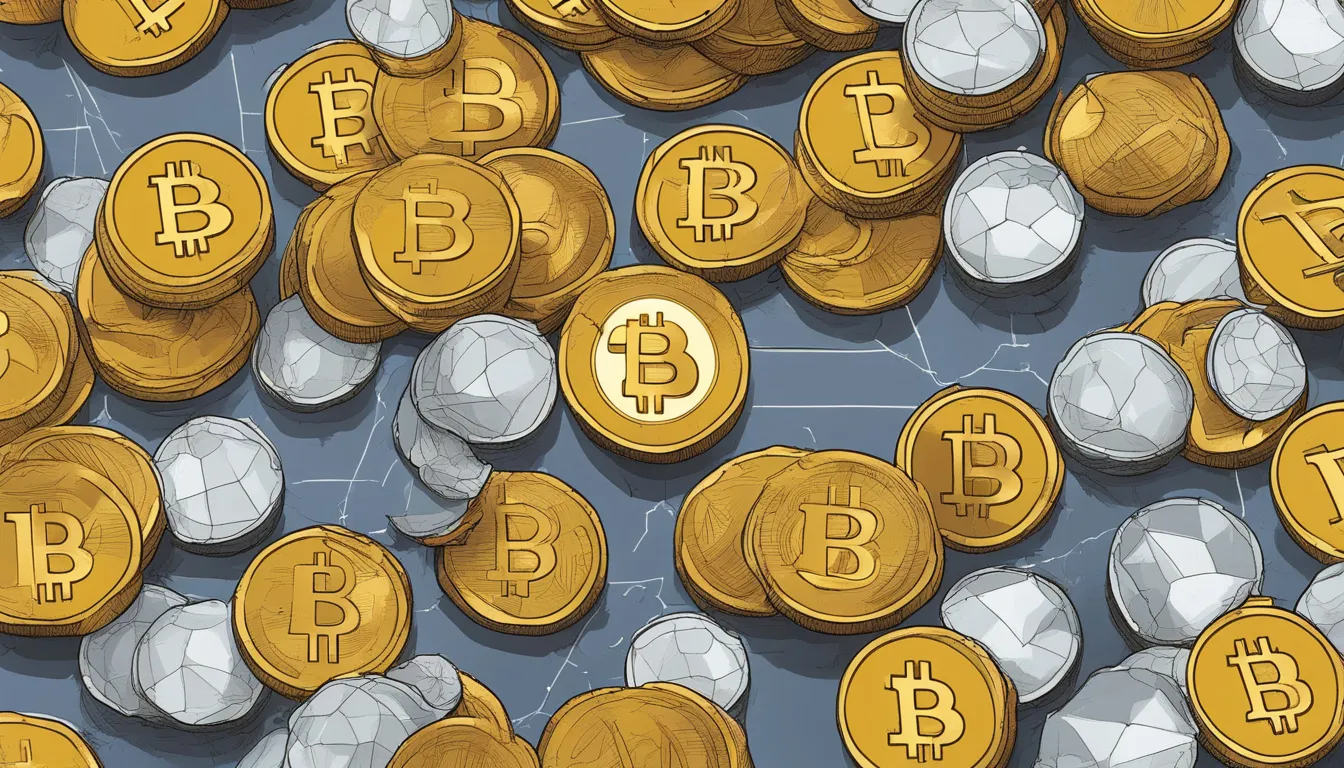The cryptocurrency market, driven by digital coins like Bitcoin and Ether, is subject to fluctuations influenced by various factors.
One such significant factor is geopolitical tensions between nations. Let's explore how heightened political uncertainties impact the cryptocurrency markets, highlighting their vulnerability to external events and emphasizing the importance of understanding these influences for investors and traders in today's ever-changing financial landscape.
Cryptocurrencies or digital coins are among many risk assets trading during periods of heightened geopolitical uncertainty. When tensions rise between nations, investors often seek safer assets in response, leading to volatility in both cryptocurrencies and traditional fiat currencies. This is because some investors tend to prioritize preserving capital during times of geopolitical uncertainty, causing a shift away from riskier investments like digital coins towards more stable options such as government bonds or gold.
Geopolitical Impacts on Cryptocurrency Markets
The susceptibility of cryptocurrencies to geopolitical events has been evident in previous crises involving Russia-Ukraine or the Middle East tensions between Iran and Israel. As these conflicts unfold, their impact on various digital coins serves as a reminder that they are not entirely immune to external factors.
For instance, during the 2014 Crimea crisis when Russia annexed Crimea from Ukraine, Bitcoin's value dropped significantly due to concerns over potential sanctions against Russia and its possible effects on the global economy. Similarly, heightened tensions between Iran and Israel led investors away from riskier assets like cryptocurrencies towards safer havens such as gold or US dollars.
Implications for Investors
Understanding how geopolitical events influence different currencies is crucial for investors and traders in the ever-changing financial landscape. The interconnectedness of global financial systems highlights the importance of staying informed about ongoing conflicts and their potential ripple effects on fiat currencies, as well as cryptocurrencies.
By keeping abreast with geopolitical developments, investors can adapt their strategies accordingly to navigate the ever-changing financial landscape effectively. For example, they might consider diversifying their portfolios by including safer assets during periods of heightened uncertainty or taking advantage of potential price dips in digital coins due to temporary market fluctuations triggered by such events.
The vulnerability of cryptocurrency markets during times of geopolitical tensions serves as a reminder that they are not entirely immune to external factors. As long as these events continue to shape our world, their impact on currency values will remain relevant in shaping investment strategies and market dynamics. Investors must stay vigilant about global developments and adapt their strategies accordingly to navigate the ever-changing financial landscape effectively.
In summary, geopolitical tensions can significantly influence cryptocurrency markets due to their nature as risk assets. Understanding these impacts is crucial for investors seeking to make informed decisions amidst volatile market conditions. By staying updated on global developments and adapting investment strategies accordingly, investors can better navigate the complex interplay between geopolitics and digital coin values in today's rapidly evolving financial landscape.
Geopolitical tensions serve as driving forces behind cryptocurrency market fluctuations, highlighting their vulnerability to external events
As nations engage in conflicts or face heightened uncertainties, investors often turn away from riskier assets like digital coins towards safer havens such as gold or US dollars. This volatility underscores the importance of staying informed about global developments and adapting investment strategies accordingly to navigate the ever-changing financial landscape effectively.
Investors must remain vigilant about ongoing conflicts and their potential ripple effects on both cryptocurrencies and traditional fiat currencies. By understanding how geopolitical events influence different currencies, investors can adapt their portfolios to include safer assets during periods of heightened uncertainty or take advantage of temporary market fluctuations triggered by such events.
Ultimately, the interconnectedness of global financial systems emphasizes the need for continuous learning and adaptation in today's rapidly evolving financial landscape. As geopolitical tensions continue to shape our world, their impact on currency values will remain relevant in shaping investment strategies and market dynamics. By staying informed about these developments and adjusting investment approaches accordingly, investors can better navigate the complex interplay between geopolitics and digital coin values in today's ever-changing financial landscape.

